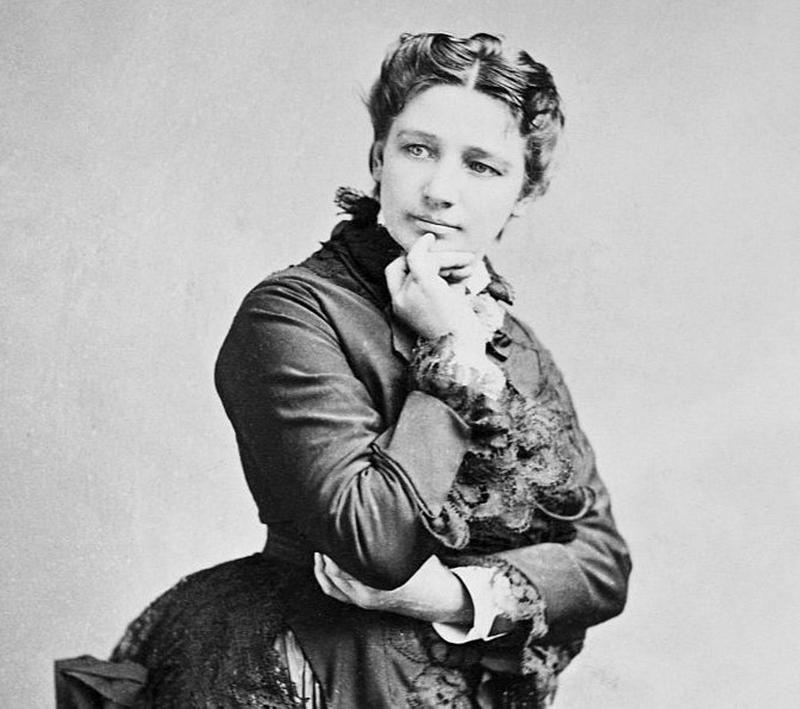Victoria Woodhull: The First Woman To Run For President (Before Women Could Vote)
By | November 8, 2020

If you Google "Who was the first woman to run for president of the United States?" you may expect articles about Hilary Clinton to pop up, but Clinton wasn't the first woman to throw her hat into the ring in the race for the White House. That was Victoria Woodhull, whose daring and controversial 1872 presidential campaign took place nearly half a century before women in the United States had even earned the right to vote.
Who Was Victoria Woodhull?
Woodhull was born in Ohio in 1838 to con man who ran a traveling medicine show called "Dr. R.B. Claflin, American King of Cancers." Victoria and her siblings were forced to perform in the show and relentlessly abused offstage, so as a desperate 15-year-old, she eloped with one of her father's rivals, Canning Woodhull.
If she was hoping for an escape, however, she didn't find it—the much older man, who was addicted to morphine and often too strung out to work, proved nearly as abusive as her father. The newly stylized Woodhull soon found herself a young mother with two children and a shiftless husband to support, and since few jobs were available to women in the 1850s, she turned back to the trade of her youth and worked as a fortune teller.
After 11 years, Woodhull had had enough. In the 1800s, the wives of abusive, deadbeat, or otherwise unfit husbands were expected to simply deal with their lot, but Woodhull rarely did what was expected of her. Much later, Woodhull's critics cast her first husband in a cartoonishly angelic light, framing him as an upstanding husband who was blindsided by his evil wife's divorce.

Woodhull In New York
In the aftermath of the Civil War, the public was fascinated with spiritualism and the idea of communicating with the dead, and Woodhull built a solid business as a psychic. She remarried a Civil War veteran from a well-to-do family, Colonel James Blood, who helped her open a psychic salon in New York, where many notable and wealthy intellectuals went to get advice on important decisions.
Woodhull and her new husband made waves advocating free love, but back then, the term had a different meaning. It was widely believed in the 19th century that a divorced woman was "tarnished goods" who would never secure a respectable husband, but proponents of free love supported divorce and remarriage.
Woodhull's sister, Tennie Claflin, joined her in New York around this time and created her own scandal by seducing the much older Cornelius Vanderbilt, one of the wealthiest men in America. With his wealth and influence, the sisters set up a stock brokerage and proved to be crafty investors. They also started a magazine, Woodhull And Claflin's Weekly, in which they published radical news and commentary.

The First Woman To Run For President
In 1871, Woodhull—who had by then risen to some prominence in New York society, thanks to her various businesses—made history when she announced her intention to run for President of the United States. At a time when women were decades away from even securing the right to vote, her campaign was controversial, to say the least, and her critics were brutal.
Of course, her gender alone would have earned her plenty of scorn as a political candidate, but Woodhull's unconventional biography gave her opponents additional fodder, and her political positions (equality for women and freed slaves, redistribution of land, a federal income tax, and general Marxist leanings) weren't exactly popular. Ironically, Henry Ward Beecher, who was well known as both an abolitionist and a philanderer, was one of Woodhull's loudest critics. Woodhull's magazine responded by publishing a scathing report on Beecher's numerous affairs, but if she hoped to damage his reputation, she failed. Instead, U.S. Marshals arrested Woodhull on charges of transmitting pornographic material by printing the word "virginity."
Because of these charges, Woodhull sat in jail on Election Day, but it's not like she had anything else to do. When the votes were tallied, Ulysses S. Grant defeated Horace Greeley (and Woodhull) to win the presidency.

Woodhull's Later Life
The negative attention she received during her political campaign was detrimental overwhelmed—and bankrupted—Woodhull. She was forced to close down her stock brokerage and her magazine, her reputation was in ruins, and her run-ins with the law only increased. Eventually, she moved to England to live out the rest of her life.

